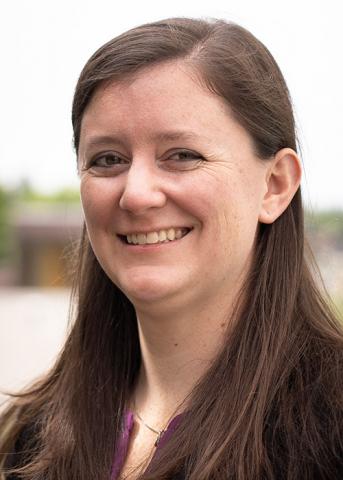
Why go back to school to study nutrition?
I studied nutrition as an undergrad at Boston University. Tuition wasn’t cheap, so I joined the ROTC to pay for school. When I graduated, I went into the Navy and spent six and a half years on active duty. I knew that I wanted to go back to nutrition. It was always the end goal.
My goal in studying nutrition – and the relationship between food and your body – is to help people improve their relationships with food. There is no good or bad food, just optimal nutrition for each person.
Why did you choose the UW?
It has a great reputation for graduating quality, registered dietitians. I also really liked the option to do a hands-on capstone project. I’m excited to be able to work on something while in school that will help further the practical application and field of nutrition. Also, I spent 18 months stationed in Everett at the Destroyer Squadron, and I loved the area.
What motivates you about nutrition?
In the Navy, I led sailors and impacted their lives – whether it was helping them get into college by writing recommendation letters or getting sailors with medical issues the support they needed. My goal is similar as a registered dietitian. I want to work in a clinic and help those are sick.
What are some of your best memories from the Navy?
I met my husband, who is also in the Navy. As an anti-submarine warfare officer, I took part in two submarine commanders’ courses, which are exercises for hopeful submarine commanders off the coast of the Bahamas. I also got to work at the Pentagon and, one year, helped to plan the International Seapower Symposium, a gathering of all the foreign heads of naval fleets from around the world.
What did you learn working at the Pentagon?
There is paperwork for everything – and that doesn’t change in public health or health care. There are always hoops to jump through and red tape to cut. You have to work within the system to get what you need or influence system-wide change.
What experience at the UW has been most influential?
As part of our clinical counseling class, I shadowed a dietitian in Medical Specialties at UW Medical Center. The clinic was for patients recovering from kidney transplants. It was incredible to see how eager patients were to make necessary dietary changes. All four patients I met were thankful for their new kidneys and were ready to live healthier lifestyles and eat foods to maintain their kidney health. It demonstrated the impact a dietitian can have on patients.
What kind of research or practice are you doing?
For my capstone, I’m working with Beth Ogata to update and redesign modules for First Steps, a program that helps low-income pregnant women and their infants with required health and social services. The modules are used as educational tools for dietitians and other providers who offer maternity support services and infant case management. The materials haven’t been updated or redesigned since they were produced in 2009.
I also took part in Public Health Nutrition (NUTR 531), a project-based course. I interviewed clinicians at Harborview Medical Center and Odessa Brown Children’s Clinic about the use of the Fresh Bucks program in Seattle, which allows SNAP (food stamps) users to buy farmers market produce. We looked at processes for prescriptions, screening methods and barriers to people using the program.
What were some key takeaways?
The program is helpful in increasing patients’ fruit and vegetable consumption as well as the variety of produce they consume. However, some barriers were the farmers markets’ seasonality, limited locations, access via public transportation and perceptions of not belonging.
What other jobs or volunteer work do you do?
I’m a Lieutenant in the U.S. Navy Reserves and I meet with my unit in Everett once a month. We also take a trip to San Diego every quarter to help ships in port with their maintenance.
Any hobbies or extracurricular activities?
I like to bake. When schoolwork is in a lull, I’ll experiment and
bring the treats in for my cohort to taste test. So far, they claim to like everything I bring to class.
What are your future goals?
I’d like to work as an inpatient registered dietitian. Specifically, I can see myself as a diabetes educator or a renal/dialysis dietitian.
What advice would you give prospective students?
Get to know your classmates. My cohort has enhanced my UW experience by making class and the breaks in between classes more enjoyable. Also, for admitted students, make sure you brush up on your physiology and macronutrient metabolism.